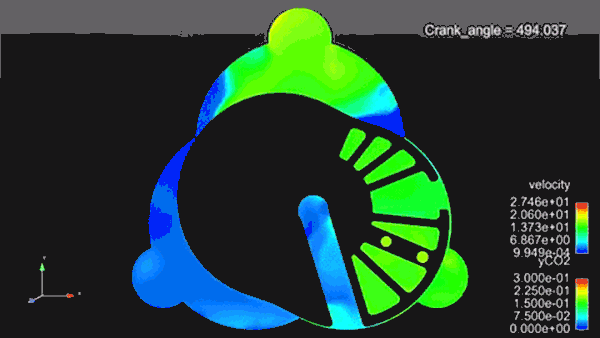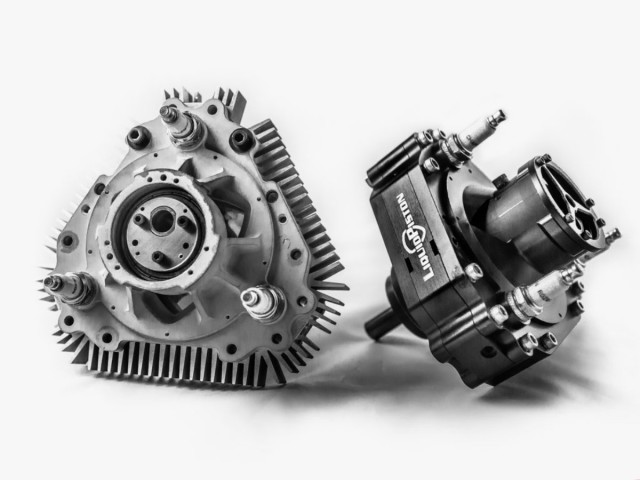Alexander Shkolnick is the president and co-founder of LiquidPiston, a Connecticut firm that has spent 13 years and $18 million rethinking the rotary engine that Felix Wankel created in 1960 and Mazda gave up on in 2012. On Monday, engineers yanked the 39-pound conventional engine out of a kart and installed the four-pound X Mini.
Although it took a moment to really get going—you’ve really got to get the revs up before anything happens—it performed exactly as planned. “It’s really great to see,” Shkolnik says.
A Wankel engine replaces reciprocating pistons with one or more triangular rotors that follow an elliptical orbit within a peanut-shaped chamber. Combustion occurs in the spaces between the triangular and circular shapes. The design, used most successfully by Mazda, allows for an engine that can run at higher speeds and produce more power than a similarly sized conventional engine. It’s also light and compact.
The reason you don’t see more of them, though, is Wankels get lousy fuel economy, burn loads of oil and emit piles of CO2. They also have a history of poor reliability. Even Mazda gave up on the tech—for now, at least—in 2012 when it quit building the RX-8.
LiquidPiston, which has a $1 million deal with Darpa, addresses these problems by turning the engine inside out. Instead of a triangle in a peanut, the X Mini uses a peanut-shaped rotor in a triangular chamber. Combustion occurs at fixed points, making it easier to lubricate without burning oil, the company says. The design can be used in engines large and small, and company brass claim it can produce up to 1,000 horsepower.
Monday’s demo proves LiquidPiston can build a functioning engine, but the company has a long way to go before starting production. Shkolnik says the engine could see its first practical application, in a drone, within a few years.
Ultimately, he sees the engine powering robots, drones, boats, electric cars, and generators. A typical 30 kilowatt-hour generator weighs 1,000 pounds or more, with military versions are closer to 3,000 pounds. Shkolnik says LiquidPiston’s engine could generate that kind of power in a unit that weighs less than 400.
Source: Wired


